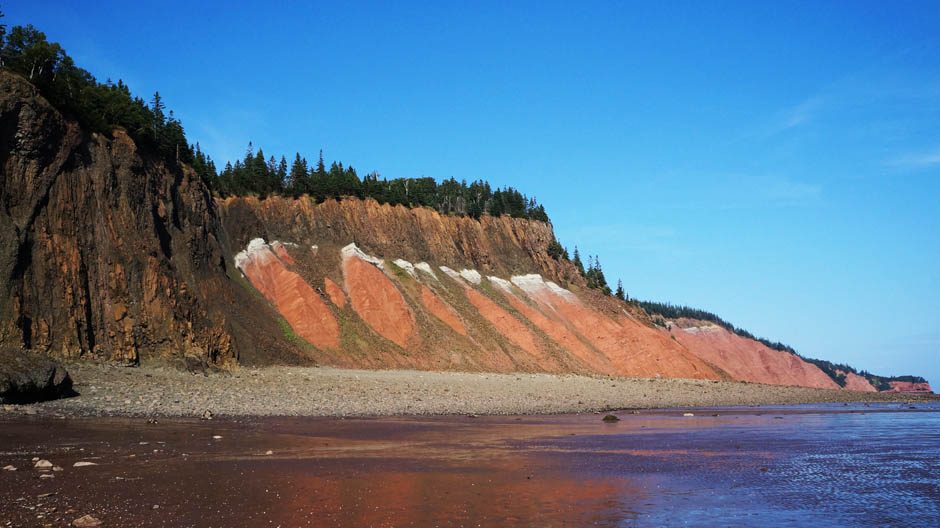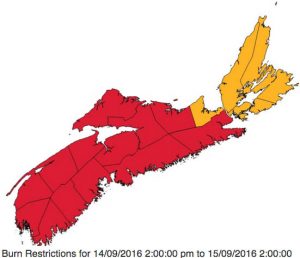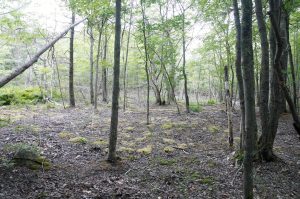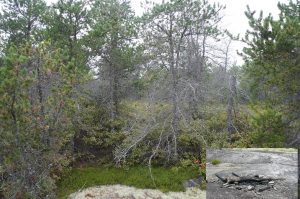It just rained intensively for about 20 minutes, then stopped. I wish it would last as a drizzle for 3+ days. We expect fires in the spring in Nova Scotia, but large fires have been rare in the fall.
(1990 to present)
1. June 13, 2008: Porters Lake/Lake Echo,Halifax Co.21 km perimeter, more than 50 agencies involved in response, 5,000 evacuated, 2 houses lost, no fatalities. 1925 ha
2. April 28, 1999: Woods Harbour, Shelburne Co. 810 ha
3. May 20, 2003: Wallace Lake, Shelburne Co. 795 ha
4. April 29, 2009: Spryfield, Halifax Co. 681 ha
5. June 12, 1992: Goff’s, Halifax Co. 595 ha
Source: http://novascotia.ca/natr/forestprotection/
wildfire/media-guide/fire-info.asp
Typically, spring fires burn only a few millimeters into the the soil. It’s the above ground vegetation that provides the fuel, before the deciduous trees leaf out and reduce flammability.
After a prolonged drought, the soil can be bone dry through a large part of the organic and root-rich surface horizons. When the roots and organic matter in those horizons catch fire, the fire is both more difficult to control and much more damaging than when just the surface of the soil burns. Such was case with the Keji-area fire in August.Now, the droughty weather is extending into the fall. I don’t like to think about the possibilities if it continues into October past leaf fall… The largest, most devastating forest fire in the Maritimes occurred in early October of 1825. “The Great Miramichi Fire [was a] massive forest fire (or series of fires) which devastated forests and communities throughout much of northern New Brunswick in October 1825. It ranks among the three largest forest fires ever recorded in North America.” ( Wikepedia)
Of course we have the advantage today of sophisticated monitoring and rapid response, and I have a lot of confidence of NSDNR in this regard.But we all need to be cognizant of the situation and stay out of the woods when so advised by NSDNR, however difficult that may be.



